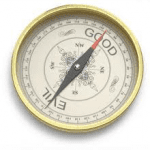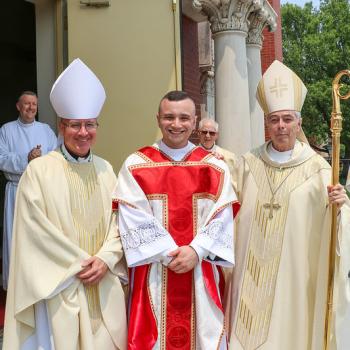The month of Elul is a time in which we pause and reflect upon our past year to engage in teshuva (repentance). I often ask myself: Are we alone in our attempts to change and grow? The Talmud suggests that God actually engages in teshuva (Megillah 29a). Can this radical suggestion that God grows, evolves, adapts with the times, and experiences redemption pass as an authentic Jewish theology?
The Torah itself states that a living God does teshuva according to Rashi's interpretation of Deuteronomy 30:3. A dynamic and evolving Shekhinah (Divine presence) goes into exile and returns with us from exile (uva l'tzion goel) only when we restore the divine presence to the lower world and heal our relationship with God. Additionally, the Midrash, on countless occasions, suggests times where God changes positions, feels regret, learns from humanity, and even destroys previous worlds that prove to be a mistake.
Many of these stories should not be read literally, but others may warrant the right to be interpreted literally when the spiritual truth exceeds logic. Rav Bachya Ibn Pakuda, the great 11th-century Jewish neo-platonic mystic, argued that the "duties of the heart" are on a separate plane from rational natural physical reality. Certain truths can only be understood on an emotional and spiritual level. One is to "know God" with the heart.
This teshuva is not a response to divine sin as that would not jibe with traditional understandings of God. Rather it is in search of an evolved completeness, a wholeness that expands from 10/10 to 100/100 to infinite/infinite. God is the aggregate of power and good in the world and this aggregate can grow but God is always the total.
The great 20th-century Jewish theologian Eliezer Berkowitz suggested that using moral attributes to describe God is not a sign of anthropomorphism. Rather attributes such as compassion, love, and justice are divine before they are human. Teshuva is a divine process before it becomes a human imperative.
God is absolutely free and free will is the constitutive means to all teshuva. In repentance, divine energy reinvigorates the world by the emanation of divine blessing (shefa) and divine self-revelation emerges in every moment and being. In this teshuva, the divine essence (atzmut) remains constant but God's relationship to creation evolves as certain divine dimensions are affected by human action and moved in the direction of total synthesis and unity. It is only with this necessary human partnership that God's expansion and healing is brought into the world.
Rav Kook explains that the Divine can be experienced as a kaleidoscope of constantly shifting colors, describing not only a human phenomenological encounter but reality itself. God is intimately connected with humankind and hears and responds to our brokenness and scattered spiritual state (pizur hanfesh). Thus monotheism is not static but is dynamic and changing where the ten divine manifestations are constantly expressed and renewed. Reality does not exist as a non-changing physical substance but is manifested as evolving experience.
Some have rejected the possibility of God changing as it may imply fallibility; however, change is not synonymous with failure. To state that God is not capable of expanding, growing, and adapting would be to limit divine omnipotence. Perfection is not static or stale; perfection is a state of constant growth, in which possibility continues to reach newer and higher actualization. One sphere of actualization is the Sabbath when God's presence is manifest and healed in the world.
According to the Habad concept of dirah batahtonin, G-d dwells in the earthly realm enabling interconnectivity between physical and spiritual dimensions of reality. God contains the universe but is more than the universe. If the world evolves then God evolves as God is in relationship to a progressing universe and is affected by humans while the foundational Divine virtues remain the same. In a very real way, God's presence is expanded into the world when humans do holy acts achieving Yihudah Ilaah (higher unity) and Yihudah taata (lower unity).
I can no longer wrestle with theologies that seem logically sound but lack the capacity to open the heart. One test for theological truth is if the soul is transformed when the truth is embraced. Another test is whether it speaks to global injustice, as the tradition teaches that tikkun olam is a divine-human partnership. In a world where billions of people live in poverty, orphans are put into slavery, and widows are raped, I can only relate to an imminent God that cries and suffers alongside us (imo anokhi b'tzara) who continues to experiment with the right balance of bestowed human determinism and freedom. The divine brokenness accompanies the journey of human brokenness and together we heal.




